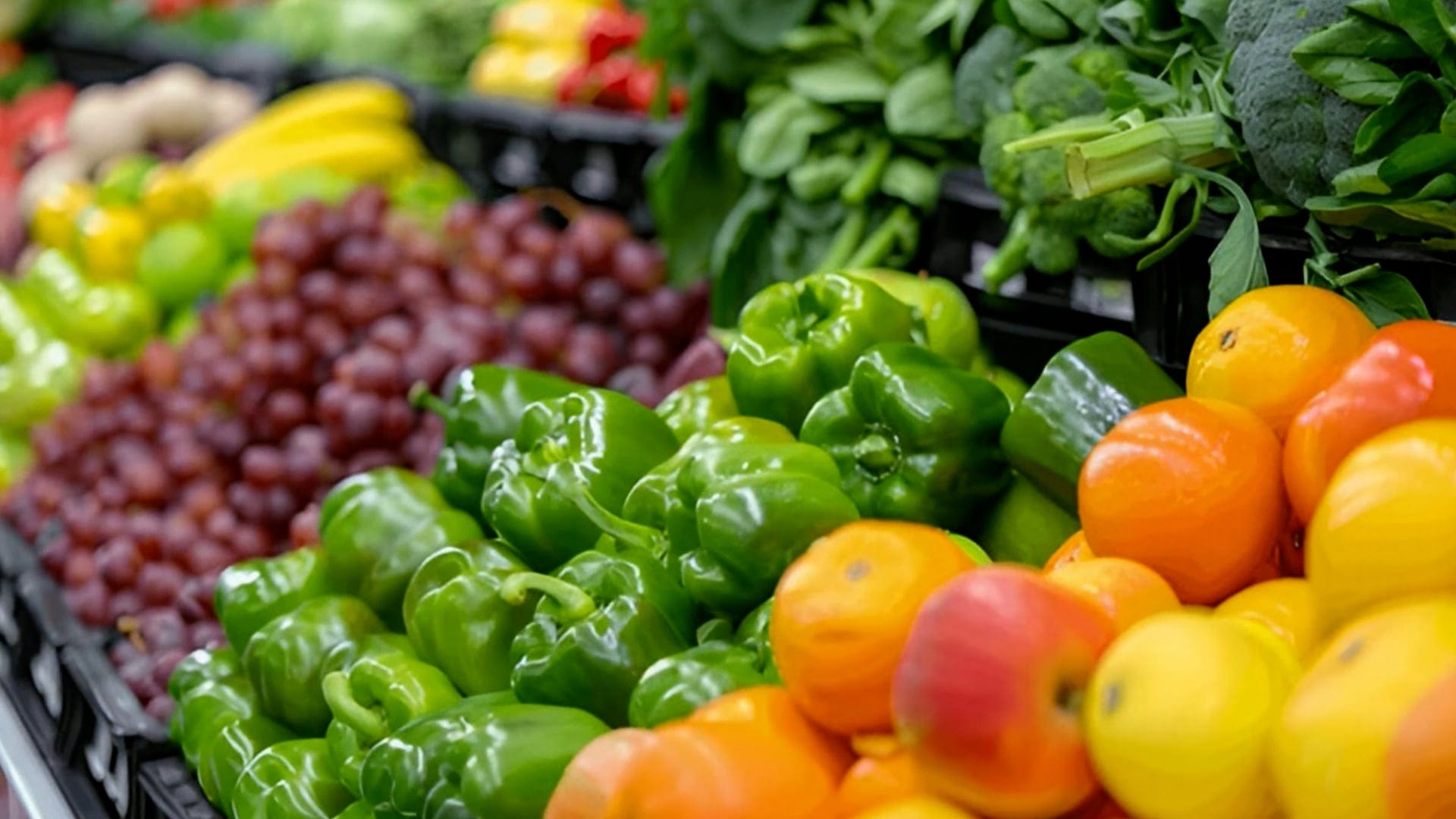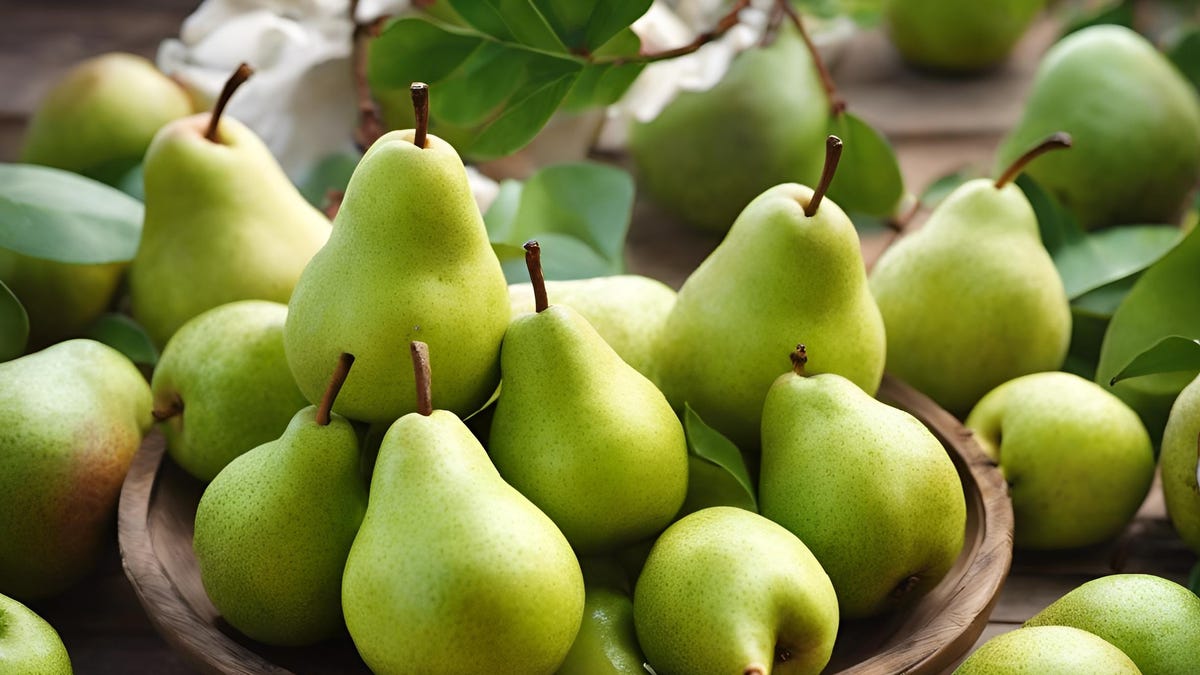
Why buying fruits and vegetables in season matters
If you buy perfect-looking strawberries but they taste like cardboard, it’s not you, it’s the season. Buying in season ensures better flavor, nutrition, and value.
unbranded – Lifestyle
Sweet, juicy and refreshingly crisp, pears have delighted taste buds for generations. Whether sliced into a salad, poached in a dessert or plucked and eaten straight from the tree, “people like pears for their natural sweetness, versatility and gentle flavor that pairs well with both sweet and savory dishes,” says Caroline Susie, a registered dietitian and national spokesperson for the Academy of Nutrition and Dietetics.
Beyond their culinary appeal, pears also pack an impressive nutritional punch and are often praised for supporting heart, digestive and metabolic health. But that doesn’t mean you should enjoy them without limits.
Here’s what pears are, why they’re good for you and who needs to be especially mindful of overconsumption.
What are pears?
Pears are fleshy pome fruits from the rose (Rosaceae) plant family, which also includes apples, peaches, plums and cherries. “Pears come in many varieties that range from crisp and refreshing to soft and buttery,” explains Lisa Young, a registered dietitian nutritionist, author of “Finally Full, Finally Slim” and adjunct professor of nutrition at New York University. Some of the most popular varieties include Bartlett, Anjou, Bosc, Concorde, Comice and Asian.
The fruit originated in temperate regions of the world like Europe and Asia, where wild species were cultivated thousands of years ago. Over time, pears spread globally and grew in popularity. Today, top producers of the fruit include Austria, New Zealand, Switzerland, South Africa and the United States, per World Population Review. Within the U.S., Washington, Oregon and California lead production.
Pears are typically in season from late summer through fall, with peak flavor between August and November. Outside this window, they are also commonly available frozen, canned or dried.
Are pears good for you? Can dogs eat pears?
No matter when you choose to eat them, pears offer a wealth of health benefits. A standout one is that “pears are one of the highest-fiber fruits you can eat,” says Young. Indeed, just one medium pear provides about 6 grams of fiber, nearly 1/4 of your daily needs. “Fiber supports digestion and helps with feelings of fullness,” she explains.
This, combined with the fact that a medium pear has only about 100 calories and virtually no fat, make pears desirable to many for healthy weight management.
Their high-fiber content also helps regulate blood sugar, improve cholesterol levels and support heart health. The potassium content in pears similarly improves heart health by contributing to healthy blood pressure.
Pears also supply vitamin C and vitamin K, which aid immune function, collagen production and wound healing. “And pears (especially their skins) contain phenolics and flavonoids,” adds Susie, “which can reduce inflammation, potentially protecting against oxidative stress and vascular damage.” These benefits align with observational studies linking higher pear intake with reduced risk of type 2 diabetes and cardiovascular disease.
Dogs can enjoy pears, too, when served safely. “Fresh pear slices (with the seeds and core removed) can be a healthy treat,” says Young. But she recommends avoiding canned pears or varieties packed in syrup, and to always remove the seeds, “which contain trace amounts of cyanide harmful to pets.”
Can you eat pears every day?
For most healthy people, eating a pear a day is both safe and beneficial. Some considerations still apply.
Pears are naturally high in fructose and sorbitol (a sugar alcohol). This, combined with their high-fiber content, means pears “may cause bloating, gas or loose stools in some people,” says Young. Those with sensitive digestion or irritable bowel syndrome (IBS) may want to limit portion sizes.
Certain health conditions also warrant caution. People with acid reflux may find ripe pears irritating, though they are less acidic than many fruits. Those on potassium-sparing medications or ACE inhibitors should also monitor overall intake. And while pears contain “only small amounts of vitamin K and are unlikely to significantly interfere with warfarin and similar medications,” Susie notes, “consistency with all vitamin K sources is recommended.”
So long as such considerations are kept in mind, says Young, “most healthy individuals can regularly enjoy pears as a safe and nutritious fruit and snack.”
